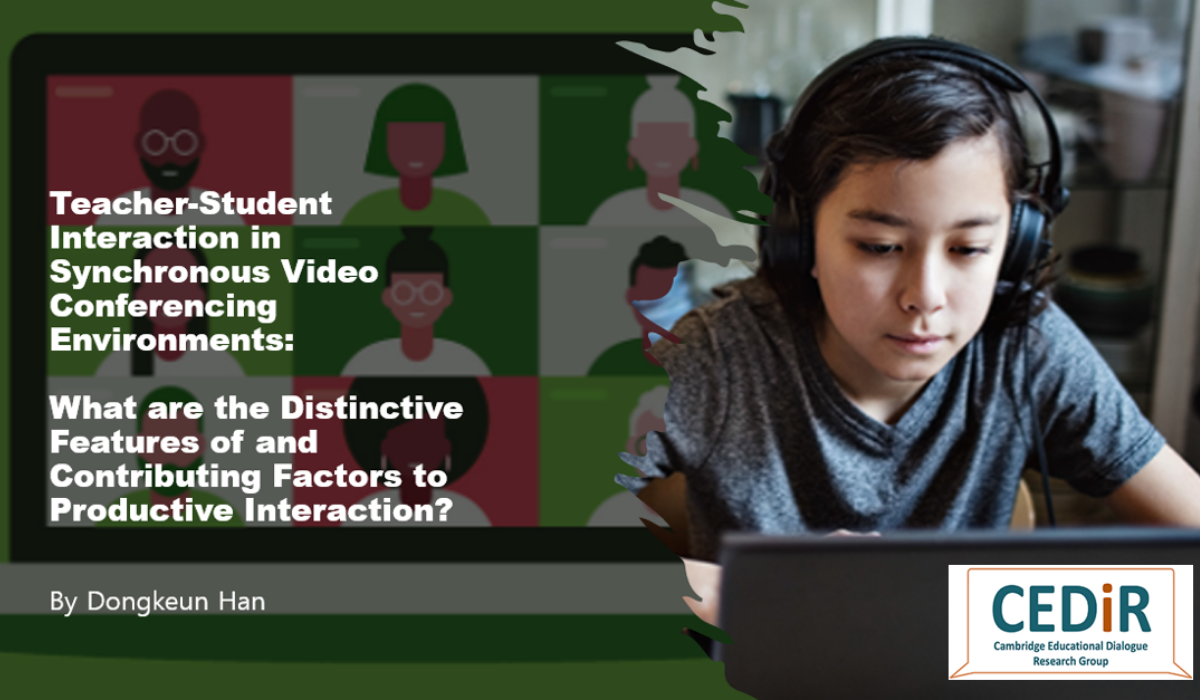
Understanding drug-resistant bacteria
Lucy student, Caroline Zellmer, shares her fascinating research on antimicrobial resistance in bacteria.
Dongkeun Han shares his research on the distinctive patterns of video interaction between teachers and students.
Dongkeun did his Master’s degree in education at Harvard University, during which he researched the impact of interactive teaching on young students' critical thinking and writing skills. In 2019, he published a book about how to use Google Home as an interactive language learning tool. In 2021, he joined Lucy Cavendish College for a PhD at the University of Cambridge Faculty of Education. Dongkeun's career goals are becoming an education researcher, teacher trainer, and educational technology developer.
Dongkeun submitted a blog entry about his research for the 2022 College Research Day Blog Competition, titled Teacher-Student Dialogue in Synchronous Video Conferencing Environment. You can read it below.

What is your research about?
The COVID-19 pandemic is reshaping education in many significant ways. Particularly obvious is that there is far more real-time educational dialogue online. In response to worldwide school closures, numerous teachers across the world have conducted live-streaming lessons via videoconferencing (VC) platforms as these enable teachers to connect synchronously with students over video as well as to exploit multiple web-based tools (e.g., interactive whiteboards) for their classroom activities. Despite such affordances for rich interaction of VC technology, there is an obvious lack of research on the features of live interactions between teachers and students that are effective for learning in VC environments. In an effort to fill this gap, my PhD project will examine the distinctive patterns of teacher-student dialogue occurring in VC classrooms and possible factors influencing the quality of such dialogue, using a mixed-methods approach that combines coding (via the Cambridge Dialogue Analysis Scheme or Tech-SEDA, the Technology version of the Scheme for Educational Dialogue) and in-depth qualitative analyses (i.e., stimulated recall interviews, independent video reviews of the same lessons, critical event analysis) based upon multimodal analysis tables. The results of this observational study may provide valuable pedagogical implications for dialogic teaching and learning in VC-mediated contexts and, ultimately, contribute to establishing a culture of engaging and collaborative learning in this new era of online education.
Can you describe your research in one sentence?
My research will examine the distinctive patterns of teacher-student interaction occurring in video conferencing classrooms and possible factors influencing the quality of such dialogue, using a mixed-methods approach with the aim of contributing to establishing a culture of engaging and collaborative learning in this new era of online education.
Does your research relate to any of the UN Sustainable Development Goals?
*Goal 4 (Ensure inclusive and equitable quality education and promote lifelong learning opportunities for all). Given the continuously changing pandemic situation and governments’ response to it, we cannot leave out the possibility of a subsequent return to virtual (or hybrid) learning. I suppose, thus, that growing research efforts in my research area (technologically mediated classroom interactions) can support effective teaching and learning in virtual environments and thus help bring flexibility and resilience to the current education systems across the world during and after the COVID-19 crisis.
Why is this research interesting to you?
To recruit teacher participants, I have had Zoom meetings with many teachers from different corners of the world - including the USA, the UK, Hong Kong, Saudi Arabia, and the Arab Emirates. They all say that further research in this area is necessary as videoconferencing (VC) has served as one of the most important educational technologies; however, the lack of students’ interaction with peers and teachers is the biggest challenge for their remote education. The findings of this research could not only support such interactive teaching and learning in virtual settings but might also contribute to and guide future research in this emerging area.

Lucy student, Caroline Zellmer, shares her fascinating research on antimicrobial resistance in bacteria.

Lucy student, Deepti Minj, shares her research on the social, political, and ecological consequences of military action.